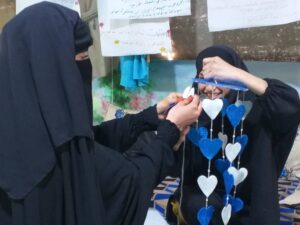Introduction
The map of civic entities in Deir Ezzor consists primarily of three actors: the local authorities, represented by the Civic and Legislative Councils; Local CSOs, which are nascent and lack adequate capacities, and INGOs and donors. Additionally, there are several active society members and tribal leaders who are not directly affiliated with these entities.
This study aims to shed a light on the status quo of civic work in Deir Ezzor considering the recent changes on the political and military level, provide an overview of the opportunities and challenges facing civil society, and provide recommendations
for all actors currently operating or planning to expand their work to the area.
Recommendations
- Raise awareness and conduct advocacy through media and on-the-ground activities to define the role of civil society and lay the groundwork for further effective projects. The civil society space in Deir Ezzor is nascent and immature, and there is a lack of understanding about the role CSOs play
in society. This awareness will be important particularly for activities conducted by CSOs outside the essential services and small-scale humanitarian work sector. This will allow CSOs to expand in the future to meet needs identified by the local community and support the general development of the region. - Increase coordination and efforts to strengthen relationships amongst the different stakeholders to overcome the current issue of unfocused efforts and to ensure effective interventions in all sectors. The ongoing lack of coordination demonstrates the importance of efforts that aim to create a suitable environment for dialogue and to bring together different actors to discuss how to address community challenges.
- Provide local CSOs and initiatives with the opportunities to develop their individual and organizational capacities through customized capacity-building programs, workshops, and connections with experts in various relevant fields.
- Support CSOs to conduct further needs assessments in Deir Ezzor province to fully understand the immense needs, the inadequacy of provided services, and the capacity of local actors. Activities implemented by local CSOs are generally driven by donors’ requirements and plans, and not fully based on an accurate needs assessment. Greater attention should be given to conducting these assessments and supporting data-driven proposals by both local and international actors alike to ensure more effective, relevant, and sustainable programming for the region.
- Increase coordination with the Civic Council and provide it with the needed support to ease and accelerate the registration process of newly established CSOs. This would have a direct positive impact on the willingness of community key personnel and individual activists to form new initiatives and CSOs, leading to a more diverse and active civil society. A comprehensive and flexible legal framework for civic entities that allows for increased working space with reduced constraints is also needed to encourage CSOs to explore various sectors and expand in terms of size, domain, and effectiveness.
- Establish communication channels to connect local CSOs with donors and INGOs to explore opportunities for collaboration and support, taking into consideration the special characteristics of the region and their emerging challenges and obstacles.


